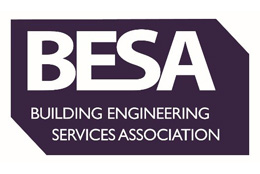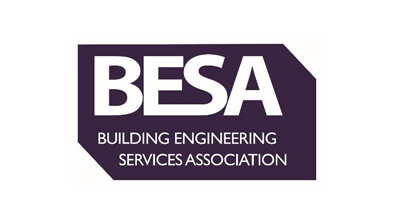BESA: Apprenticeships crucial to improving sector’s diversity

Scottish Apprenticeship Week (SAW) can play a pivotal role in helping the building services sector get to grips with its skills shortages and lack of diversity, according to the Building Engineering Services Association (BESA).
The theme of this year’s SAW (#ScotAppWeek23) is ‘unlocking potential’ and events during the week will celebrate the benefits that apprenticeships offer for both individuals and businesses, as well as helping to raise awareness, understanding and excitement around career opportunities in the built environment.
BESA believes apprenticeships are the best way to equip the building engineering workforce with the modern skills it needs to be “fit for the future” and meet growing demand in areas such as indoor air quality, decarbonisation of heating, and renewables. It is urging employers in Scotland to show their commitment by signing its pledge to take on at least one new apprentice this year.
The sector is struggling to address a growing skills gap created by its rapidly ageing workforce. It has a high proportion of employees already over 60 and nearing retirement plus a sharp drop in the number of workers under 30.
However, recent research by the Energy Systems Catapult revealed that just 2% of the people employed in the heating industry are female and only 5% are from a BAME background. BESA said this was an example of a wider failure to recruit a properly diverse workforce with the skills needed to decarbonise buildings and meet government net zero targets.
Helen Yeulet, BESA’s director of training and skills, said: “We urgently need to replace lost skills and start to rebuild the thinning ranks of the youngest and brightest in our industry. The new generation expects an employer to demonstrate diversity in all aspects of its business. So, unless companies adapt, their ability to recruit new entrants from any demographic is severely limited.
“Our industry’s lack of diversity leaves it woefully short of skills, but also means we are missing out on the diversity of thought and ideas that allow us to approach engineering challenges in new ways. This is particularly crucial as we adopt more emerging technologies and processes to address climate change and make buildings safer and healthier,” said Yeulet.
BESA’s ‘Future Skills’ pledge is a way for building services employers to show their commitment to bringing new talent into the sector, grow the skills of existing workers through apprenticeships and make sure they have a workforce that can meet future challenges.
The association is also hosting a webinar for employers in Scotland on April 18th at noon exploring the importance of apprenticeships in helping firms develop a workforce that is fit for the future. The webinar will explain and simplify the apprenticeship process for employers, demystify funding, outline potential costs and the likely return on investment. It will also be an opportunity to hear from other building services employers, who will share their experiences and offer advice.
Ms Yeulet added: “Our industry has a wide range of really exciting opportunities due to its central role in addressing climate change, helping people reduce their energy costs and making buildings safer and healthier, but we often struggle to get that message over to a wide enough audience.
“SAW is an opportunity for us to present our best and most exciting side to the wider world – and by taking our Future Skills Pledge, employers can demonstrate their commitment to bringing new skills into our industry and offering great career opportunities.
“It is also a really good way to upskill existing employees. Apprenticeships should not be thought of as solely reserved for new entrants or those of school leaving age,” she added.
Recent government research found that 86% of employers who took on at least one apprentice believe it helped them develop the skills most relevant to their organisation. 78% said their apprentices helped them improve productivity, and 74% stated they had improved the quality of their product or service.
The BESA ‘Future Skills’ pledge does not require the pledger to commit to taking on an apprentice immediately but will help the Association and its college partners identify and prepare the training resources needed to meet demand. Once the pledge has been made, BESA will contact the employer to get a better understanding of their requirements and provide advice about possible training providers, funding, and access to suitable candidates. The pledger can also access the Association’s Skills Advisory Service for a wide range of support and advice.
Sign up here for the Scottish apprenticeship webinar on April 18.

















